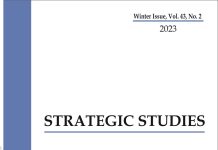The issue of fragile states has been at the centre of international security and development agenda for more than a decade. The international donor community’s deep interest in fragile states meant the issue would rise to the top of International Relations’ scholarship, resulting in a vast body of literature on the subject. Greg Mills’ is an important addition to such literature, though unlike most of other writers on the subject, he is less interested in pathologies of state fragility and failure, and more in the prospects of their recovery from this malaise.
In Why States Recover, Mills is primarily guided by the question of how best can the international community intervene in fragile states to steer them along the path of stability and recovery. To find an answer to this question, Mills gives a broad overview of more than thirty countries which are or have been termed as fragile or failed states. These states suffer or have suffered from three types of state failure: state collapse, democratic failure and authoritarian governance. The answer that Mills has found is simple: local ownership is a sine qua non for the success of any effort at rehabilitating a fragile state. Though some strategies work in some contexts and flounder in others, the stipulation of local ownership is absolutely non-negotiable.












